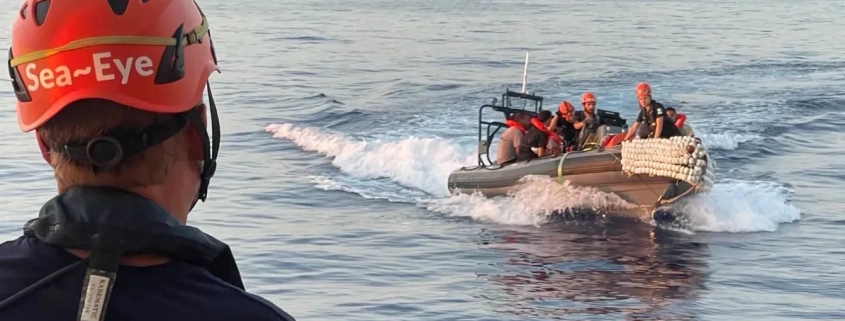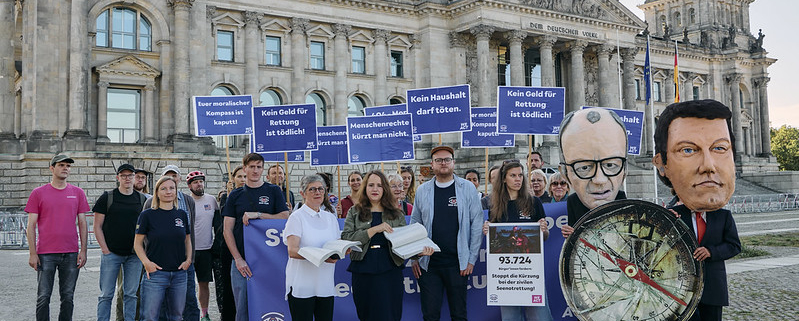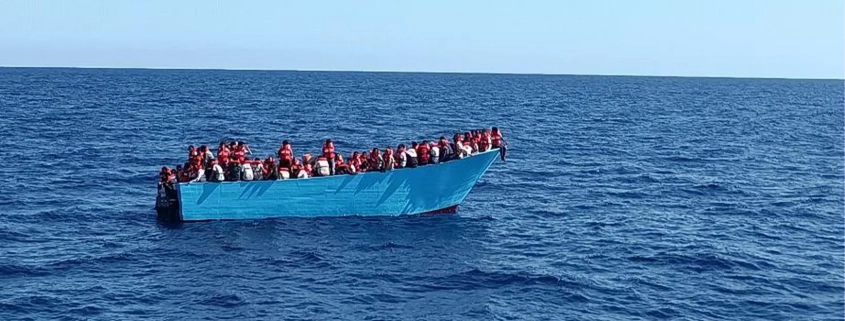40-hour transit at 33 degrees Celsius severely affects the health of those rescued
During Saturday night, the crew of the SEA-EYE 5 responded to a distress call from the organisation Alarm Phone at around 3:00 a.m. and was able to rescue 43 people from imminent danger. A few hours later, at around 6:00 a.m., the crew spotted another unseaworthy boat with nine people, who were also safely taken aboard the all-weather lifeboat.
Among the 52 people rescued are three babies and two pregnant women. The rescue ship is currently on its way to Brindisi, assigned port of safety by the Italian authorities.
“The people on board have already been through a great deal,” reports Dr Giovanni Cappa, on-board doctor on the SEA-EYE 5 for German Doctors. “The extreme heat and the swell are very difficult to cope with, especially for the babies and pregnant women. It would be so easy to alleviate their suffering by allowing us to head for a closer port of safety as quickly as possible.”
The SEA-EYE 5 is designed for emergency rescues, but not for long transit routes. In addition, drinking water supplies are becoming increasingly scarce. The crew of the SEA-EYE 5 has already asked the Italian authorities twice to assign a closer port, but both requests remained unsuccessful.
Gorden Isler, Chairman of Sea-Eye e. V., explains: “These people have already experienced the unimaginable. Now they are being forced to endure extremely stressful conditions and wait unnecessarily long periods for disembarkation – these are disgusting political power games and inhumane and absolutely unacceptable behaviour, carried out at the expense of people who have already had to leave everything behind in the hope of a better future – knowing full well that the attempt could cost them their lives.”

 Sea-Eye
Sea-Eye Lonsky/Campact
Lonsky/Campact
